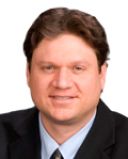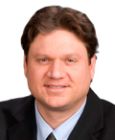Intelligence
What Should Count Toward "Eminence" Among Sexual Scientists?
If we're going to award scientific prestige, which criteria should count most?
Posted October 19, 2019 Reviewed by Gary Drevitch
Eminence is generally defined as “fame or acknowledged superiority within a particular sphere.” Among sexual scientists, there's always been some disagreement about what should count toward sexological eminence. Should it be recognized greatness in clinical work? Maybe the most highly cited scholarly publications? What about undeniable fame established in the media or through writing popular books that lots of people actually read?
Across the sciences more generally, there's been a move away from focusing on bestowing established individuals with "eminence" awards. Instead, there's been more of an emphasis on noting rising stars among early-career researchers or ECRs (e.g., more early-career awards at conferences), acknowledging the highly rigorous work done by everyday scientists, and more calls for recognizing the critical roles that collaboration and teamwork invariably play in achieving truly impactful scientific insights. (See a great preprint by Simine Vazire on these points here and a related podcast that's definitely worth listening to here.)
Below I have listed some thoughts about how eminence could be defined among sexual scientists, focusing on “fame or acknowledged superiority" within 11 specific spheres of sexual science. Some might argue for different spheres than I've highlighted, in part because such a list should depend on the contexts and purposes for which “fame or acknowledged superiority at science” is being defined. For example, is this just a lifetime award for previous scholarly impact, is the purpose that we want scientists to emulate this eminence, or are we trying to recognize a scholarly life especially well-lived?
Also, it's key to note that most processes of bestowing “fame or acknowledged superiority” are likely subject to personal and structural biases, making the use of any list of key criteria problematic in implementation (including this one).
That said, here are 11 spheres of sexual science that I think might be appropriate for determining eminence among sexual diversity scientists:
1. Teaching: Acknowledged to have taught sexual science especially well (relative to peers) at undergraduate and graduate levels (e.g., won teaching awards); own scientific research shapes and is often used in the teaching of sexual science (e.g., cited in textbooks, articles used as readings in syllabi).
2. Publications: Produced many highly cited scholarly articles, book chapters, books (H-index above... I don't know... maybe 50 among sexual scientists?); many papers/chapters/books are very highly cited (again, not sure on a specific number... maybe several having been cited over 1,000 times?); many papers/chapters/books have won science awards.
3. Theory: Created highly influential and scientifically useful theories/hypotheses (or even whole new paradigms) that have fruitfully guided productive research agendas across individuals, areas, and disciplines; has a distinguished record of advancing theories of others in noteworthy ways.
4. Measurement: Created highly influential and scientifically useful concepts/scales that have fruitfully guided productive research agendas across individuals, areas, and disciplines.
5. Methodological Rigor: Utilized especially rigorous methods; used diverse methodologies and proper samples; results are highly replicable and generalizable; practices Open Science.
6. Collaboration: Created large scientific research teams/networks/collaborations that have generated highly influential and scientifically useful scholarship; participated in and contributed to many scientifically productive teams.
7. Mentorship: Mentored many students, post-docs, and junior faculty who themselves have gone on to create highly influential and scientifically useful theories/hypotheses, concepts/scales, and research networks/collaborations (e.g., won mentorship awards).
8. Communication: Presented effectively and served as an ambassador for sexual science at conferences (e.g., keynote addresses around the world); wrote highly acclaimed popular science books; engaged effectively (and properly) with social media, news media, and wider communities.
9. Leadership/Service: Served effectively within universities (e.g., Department Chair, Dean, Provost), within scholarly organizations, within journal editorial staff, within sexual science-related community organizations, and so forth.
10. Reform: Has consistently encouraged making sexual science better (e.g., practices and advocates Open Science); emphasized importance of non-WEIRD collaborations and samples; demonstrated and championed dealing effectively with issues of inclusion, diversity, equality, and meeting the special needs of ECRs.
11. Social Value: Bonus point multipliers for all of the above if scientific eminence has achieved potent social impact and/or demonstrated high applied value (e.g., health, medical, clinical, therapeutic, education, teaching, government, business, charitable, and so forth).
These are just some of my thoughts about judging scientific eminence among sexual diversity scholars. What are yours?




